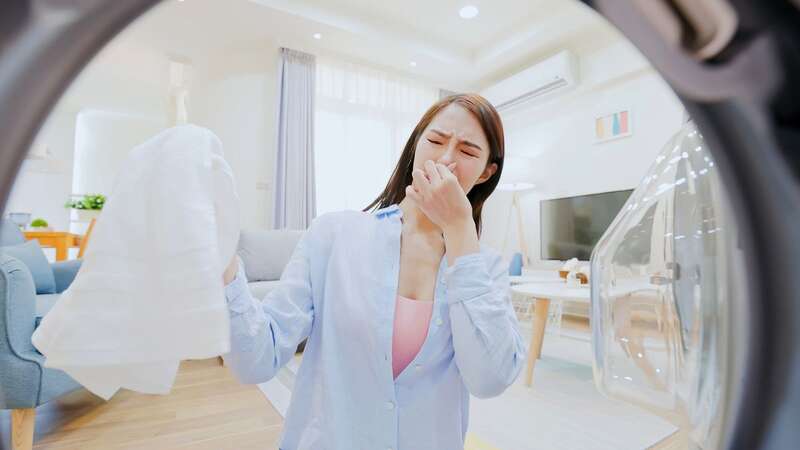
You'd be surprised how many people don't clean their washing machines, and even those that work hard to keep it hygienic will have pulled their laundry out of the machine only to find that is smells funny - musty and unpleasant - at least once.
Even if you regularly run a drum wash setting on your washing machine and the cupboard under your sink is packed full with cleaning products, there's one place that mould can easily be missed: the rubber seal.
Mould builds up here because of a combination of factors, including the warm temperature, lack of sunlight, trapped moisture and dirt, which can make it a hot bed for mould growth. It's easy not to notice, particularly if - like most of us - you're always in a rush, trying to balance household maintenance with cooking meals, working full time and ensuring that everyone in your home is properly taken care of.
However, there's one incredibly inexpensive expert-recommended hack - only 29p - that will not only efficiently clear any existing mould without any scrubbing required, but could also stop it from returning: white vinegar.
The expert, Ron Shimek from Mr. Appliance, spoke to the Express about just how to utilise this clever hack to minimise the mould that so easily can grow in the underside of the seal, that you can't see without pulling it out. "When you finish washing clothes for the day, take a washcloth with equal parts of white vinegar and water and wipe down the door gasket. Leave the door open until it's dry.
 Make 2023 your most productive year yet by using the 'intention' method
Make 2023 your most productive year yet by using the 'intention' method
"Once a month, run a cleaning cycle using hot water and one cup of white vinegar," the expert explains. Shimek also said that mould growth can be prevented by wiping down the seal after every washing cycle and by leaving the door to your machine open for a little while to get some air circulating through it. Combine this with "periodically running a cleaning cycle with white vinegar," and your machine will be entirely mould-free.
When it comes to cleaning, vinegar is an incredible multi-purpose tool because it contains an organic compound called acetic acid. This means it can break down substances like oils and bacteria. It is also included in many of the cleaning products you can buy in shops, so in a lot of circumstances you can cut out the middleman and a huge chunk of the cost by using vinegar in your cleaning regimen. White vinegar is best to use because darker kinds would be more likely to stain household surfaces, but it's always best to test any product you're using to clean on an out-of-sight spot first, just in case.
Completely eco-friendly, you don't need to worry about white vinegar you use in cleaning having any harmful after effects, particularly when it meets the water supply after travelling down your pipes, so it's a great swap if you're also looking to make some sustainable changes to your lifestyle.
Do you have a story to tell? Email: emma.mackenzie@reachplc.com
Read more similar news:
Comments:
comments powered by Disqus
































